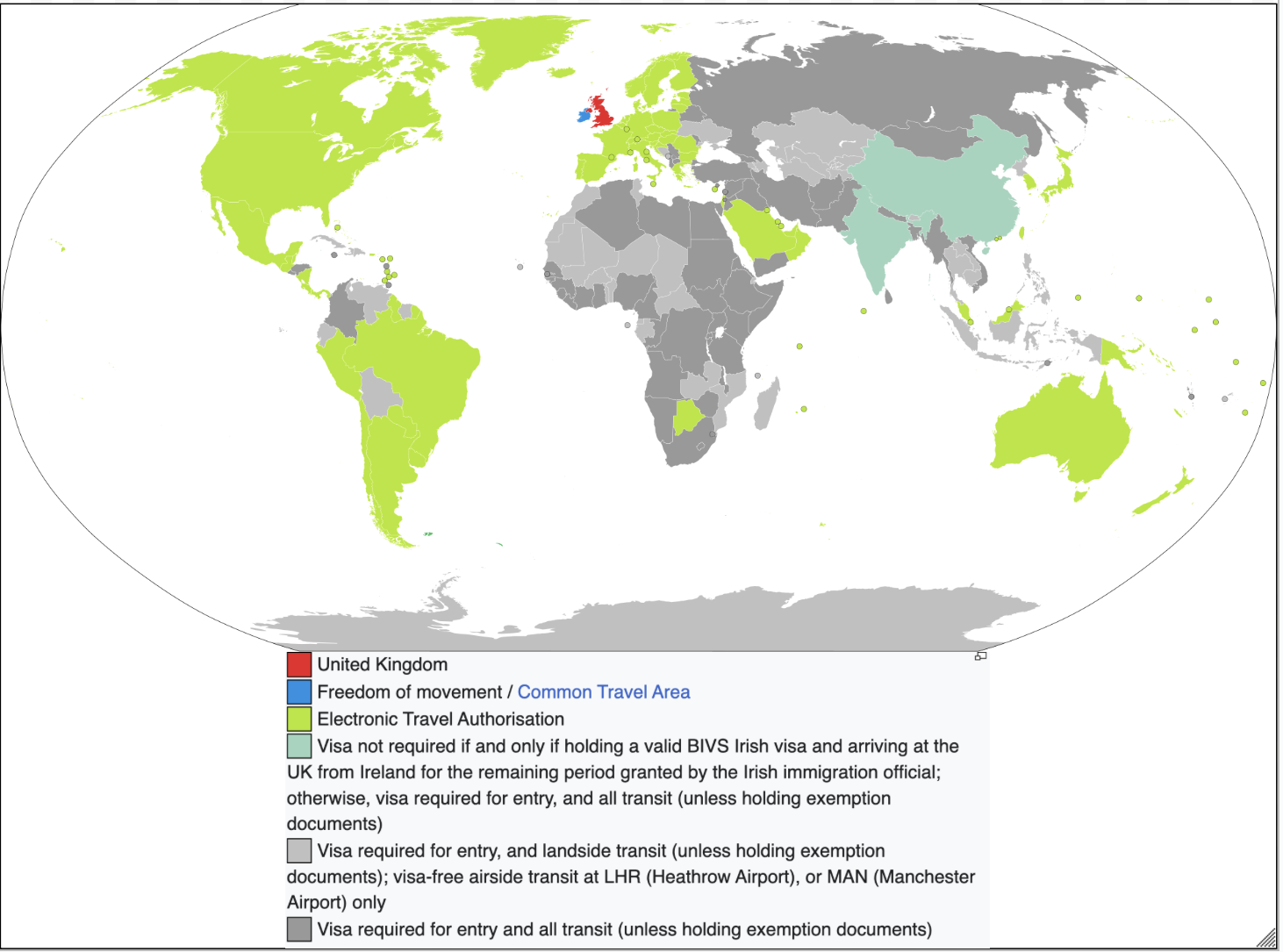UK Visa Policy 2025 Map


Marcus Rodriguez
Historical Geography Expert
Marcus Rodriguez specializes in historical cartography and geographic data analysis. With a background in both history and geography, he brings unique...
Geographic Analysis
What This Map Shows
The "UK Visa Policy 2025 Map" provides a comprehensive visualization of the countries whose citizens can enter the United Kingdom with or without a visa. This map highlights the varying requirements for entry based on nationality, illustrating the diverse and complex landscape of visa policies that govern international travel to the UK. It categorically displays which countries are granted visa-free access, those requiring a visa prior to arrival, and those that may be subject to additional conditions, like Electronic Travel Authorizations (ETAs).
Deep Dive into UK Visa Policy
Visa policies are crucial in regulating the flow of travelers into any country, and the UK is no exception. Understanding these regulations not only helps citizens of other nations prepare for their journey but also provides insights into the diplomatic relationships the UK maintains globally. As of 2025, the UK continues to adjust its visa policies post-Brexit, leading to significant changes in how citizens from various countries can access its borders.
Interestingly, citizens from the European Union (EU) still enjoy considerable freedom when traveling to the UK, albeit with some new requirements. Prior to Brexit, EU citizens could freely enter the UK without a visa. However, changes have introduced a need for an ETA for some travelers, which is expected to be rolled out in full by 2025. This shift reflects the UK’s desire to maintain security while balancing the need for tourism and business.
Furthermore, the UK has established a clearer framework for countries outside the EU. For example, citizens from the United States, Canada, Australia, and Japan can enter the UK visa-free for short stays, which facilitates tourism and business exchanges. In contrast, travelers from several countries in Africa and parts of Asia are required to obtain a visa before their arrival, underlining the complexities of international relations and security considerations.
A notable aspect of the UK visa policy is the Points-Based Immigration System, which was introduced to streamline the process for skilled workers from around the globe. Under this system, applicants are assessed based on criteria such as job offer, skill level, and English proficiency, which aims to attract talent while ensuring that the labor market remains robust. This strategic approach aligns with the UK's broader economic goals and demographic needs.
Regional Analysis
When analyzing the various regions depicted on the map, it’s clear that visa access differs significantly. For instance, citizens from the Americas generally experience more lenient entry requirements compared to those from the Middle East and North Africa. Countries like Brazil and Argentina allow their citizens to travel to the UK without a visa for short visits, while travelers from countries embroiled in conflict or political instability, such as Syria and Yemen, face stricter regulations.
In Europe, the dynamic is also fascinating. While EU member states enjoy relatively easier access, countries in the Western Balkans like Kosovo still require visas. This disparity often leads to discussions about regional integration and the future of EU relations with neighboring countries. Additionally, commonwealth nations often have special considerations that can ease the visa process, reflecting historical ties.
Significance and Impact
The implications of the UK's visa policies extend beyond just entry regulations. They influence tourism, international business, and even cultural exchanges. As global travel patterns evolve, so too does the necessity for responsive visa regulations that can accommodate changing geopolitical landscapes.
Moreover, the integration of technology in the visa application process, such as the move toward ETAs, highlights a trend toward digitization in immigration. This not only makes the process more efficient but also enhances security measures, ensuring that the UK remains a safe destination for visitors.
As we look toward the future, it’s essential to recognize how these visa policies impact the UK's position on the world stage. With ongoing discussions around trade agreements and international partnerships, the potential for further changes in visa regulations remains high. Have you noticed how these policies can affect everything from tourism growth to international student enrollment in UK universities?
Understanding visa policies is not just about knowing who can enter the UK; it’s about grasping the broader narrative of global mobility, international relations, and the interconnectedness of our world today. As the UK approaches 2025, keeping an eye on these changes will be essential for travelers, policymakers, and businesses alike.
Visualization Details
- Published
- August 15, 2025
- Views
- 114
Comments
Loading comments...